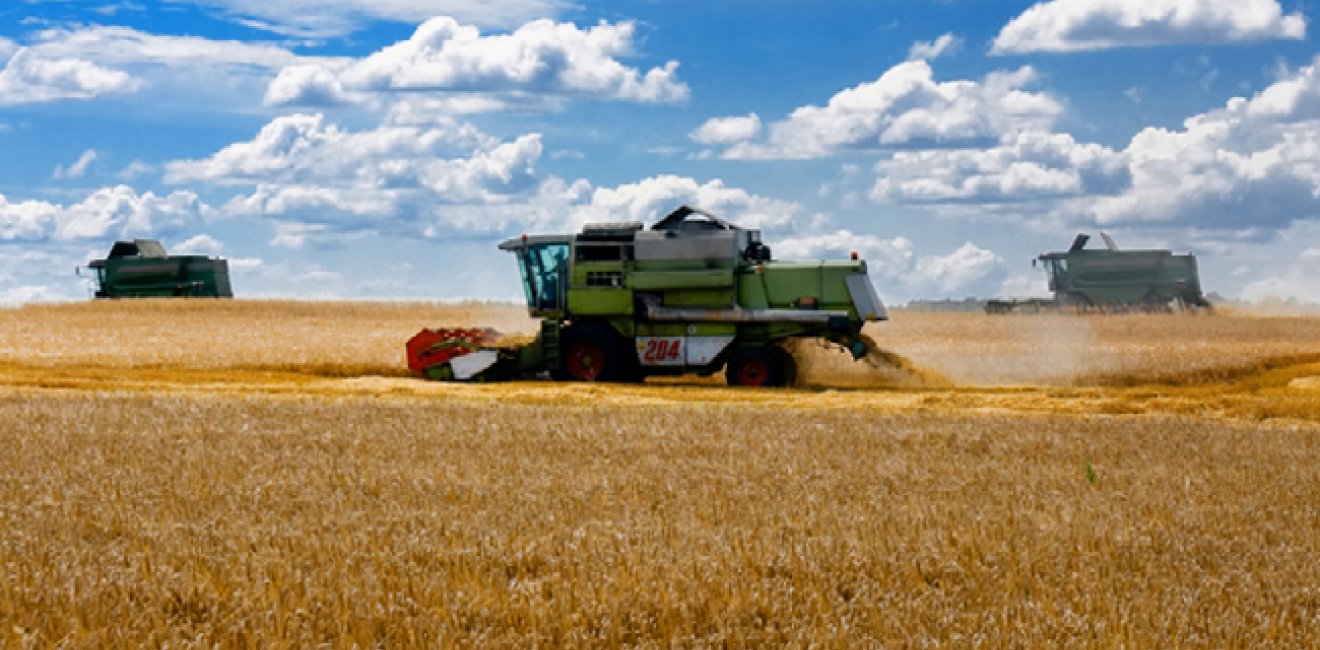
A blog of the Africa Program
Due to the Russia-Ukraine war, a new global disaster is threatening to plunge Africa into increased risk of famine and deprivation. Ukraine and Russia are among the world's foremost breadbaskets. Together, they provide around 30 percent of the world's wheat and barley, one fifth of its maize, and over half of its sunflower oil. Ukraine is the largest exporter of sunflower oil, the fourth largest exporter of maize (corn), and the fifth largest exporter of wheat. UN Assistant Secretary-General Amin Awad said, "This war will have no winner. Rather, we have witnessed for 100 days what is lost: lives, homes, jobs and prospects." The war has worsened a food security crisis that is already burgeoning in many countries. High commodity prices and supply chain disruptions are hitting the global community hard. The UN has also consistently stressed the threats of famine that vulnerable states around the world including Africa face as a result of the war.
Russia's blockage of Ukraine ports may be considered an attack on the global supply chain given Ukraine's previous status as a top exporter of grain and agricultural products. Port closures have prevented roughly half of Ukraine's sunflower oil from leaving the country, and processing facilities remain disrupted. The Food and Agriculture Organization (FAO) estimates that areas where major spring crops such as maize, barley and sunflower seeds are grown have declined by about 20 percent. The crisis has pushed global vegetable oil prices significantly higher and additionally triggered trade policy responses around the world that restrict supplies and raise prices further.
The destruction of ports and infrastructure in Ukraine, rising congestion and costs of shipping grain, trade restrictions, airspace closures, contractor uncertainty, and security concerns are complicating all trade routes going through Ukraine and Russia, thus further increasing trade costs and uncertainty about Russian and Belarus exports and posing problems for the international fertilizer trade. Countries depending heavily on fertilizer imports from Russia, Belarus, and Ukraine face an immediate shortfall and will need to secure alternative sources from a very tight global market. Procuring from other countries may imply greater distances and transportation rerouting which will lead to additional costs, pushing fertilizer prices even higher.
Africa's Food Security in Turmoil
Africans, although far away from Ukraine, are victims of the economic impacts of this crisis. The cost of petroleum products have skyrocketed, and exchange rate depreciation is a major challenge compounding the rise in global food prices. The war has prevented food exports, which account for 40 percent of the African food supply, from leaving Ukraine. Nigeria obtains a fourth of its wheat imports from Russia and Ukraine. According to Human Rights Watch (HRW), Cameroon, Tanzania, Uganda, and Sudan source "more than 40 percent of their wheat from Russia and Ukraine." Sixty four percent of wheat and fourteen percent of fertilizers in Rwanda come from Russia, Senegal imports up to 650,000 tons of wheat, partly from Russia and Ukraine, annually. With the war, supplies are tight, and prices have risen, increasing FAO's Food Price Index by 12.6 percent, a 34 percent increase in twelve months, the highest since the 1990s.
Fertilizer price spikes and availability threaten future harvests and therefore risk keeping food prices higher for a long time. The war has disrupted global commodity markets and trade flows to Africa, increasing already high food prices on the continent. Smaller markets, especially those of many African countries face a particularly difficult situation, as marketers are likely to favor shipping their limited supplies to larger markets. The FAO and the United Nations World Food Programme (WFP) have warned of possible famine in several parts of Africa and a worsening food security crisis.
Before the war, many African countries were already struggling with soaring food prices due to the impact of climate change and COVID-19. There is likelihood of another impact from the war and continuous food insecurity in Africa going forward. The WFP has cautioned that with the war, acute hunger may increase by 17 percent globally with sharpest increases expected in East, West, Middle, and Southern Africa. Based on the WFP's hunger map data, only Tanzania and Algeria recorded less than 10 percent of their population experiencing insufficient food consumption. Food trade disruptions impacting food supplies and fueling food price increases may worsen the already-existing moderate-to-high insufficient food consumption across several countries.
Vulnerable populations already struggling to get food, risk being pushed further into worse food insecurity. Consumer food price inflation, which had already surged in 2021 is expected to continue in many African countries. The situation is worsened by the fact that low-income countries have a limited fiscal capacity to protect the purchasing power of low-income households and prevent rising food prices from causing severe food insecurity as well as a further deterioration of diets. Before the war, the cost of nutritious foods and high rates of poverty and inequality kept healthy diets out of the reach of 66.2 percent of people in Africa. The war is threatening to make a bad food supply situation dire unless quick action is taken.
What Action is Required?
African governments, the African Union (AU), and the international community should act quickly to protect everyone's right to food by embracing creative partnerships and private sector expertise to scale up emergency food aid and social protection systems as well as focus efforts on responding to current crises. African governments and the AU, with the support of development partners, should focus on building resilient food systems to withstand current and future shocks. They should prioritize accelerating progress via the AU's Comprehensive Africa Agriculture Development Programme (CAADP) in order to address systemic food production constraints by supporting agricultural growth, increasing farmer productivity and access to food production inputs, and leveraging new innovative technologies and financing.
The World Bank and International Monetary Fund should scale up financial support to Africa by deploying funding and technical assistance and increasing private sector involvement and investment as well as refraining from pressuring African countries to adopt fiscal consolidation measures that could further raise food prices and social spending. The AU and Inter-Governmental Authority for Development (IGAD) should promote open trade across Africa and strengthen private sector markets. Opportunities provided by the African Continental Free Trade Area agreement ought to be utilized, to scale up production and reap benefits from expanded regional markets. Noting the UN's tireless and steadfast efforts to respond to the war's devastating impact, Assistant Secretary-General Awad stated flatly, "But above all we need peace. The war must stop." Ultimately, to resolve today's food insecurity, the war needs to reach a ceasefire.
Dr. Florence Odiwuor is a Lecturer at the School of Agriculture, Natural Resources and Environmental Studies at Rongo University, Kenya. Her teaching work is centered on sustainable food value chains, food supply chains, food security, post-harvest systems, public-private partnerships, and project planning and management. She is a Southern Voices Network for Peacebuilding (SVNP) Scholar during the summer (May to August) 2022 term at the Woodrow Wilson International Center for Scholars in Washington, D.C.
Photo credit: Harvesters work in the wheat harvesting field in Ukraine by zmeypetrov/Shutterstock.com
The opinions expressed on this blog are solely those of the authors. They do not reflect the views of the Wilson Center or those of the Carnegie Corporation of New York. The Wilson Center's Africa Program provides a safe space for various perspectives to be shared and discussed on critical issues of importance to both Africa and the United States.
Author

Lecturer, School of Agriculture, Natural Resources and Environmental Studies, Rongo University, Kenya

Africa Program
The Africa Program works to address the most critical issues facing Africa and US-Africa relations, build mutually beneficial US-Africa relations, and enhance knowledge and understanding about Africa in the United States. The Program achieves its mission through in-depth research and analyses, public discussion, working groups, and briefings that bring together policymakers, practitioners, and subject matter experts to analyze and offer practical options for tackling key challenges in Africa and in US-Africa relations. Read more

Explore More in Africa Up Close
Browse Africa Up Close
The Innovative Landscape of African Sovereign Wealth Funds



